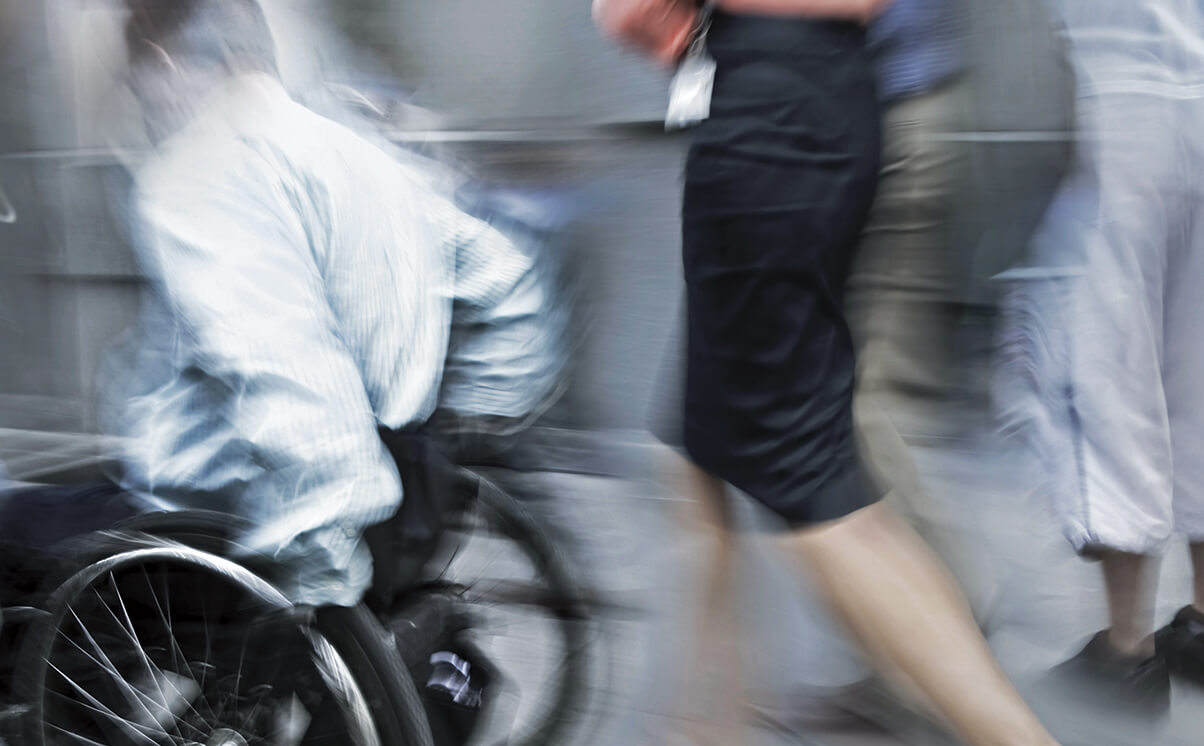Senior paralegal Ralph Johnson successfully assisted a pro bono client, Vivian, after she was informed by the Department for Work and Pensions (DWP) that her Personal Independence Payment (PIP) award was ending. Vivian had been receiving PIP in relation to her ill health following treatment for cancer and additional disabilities resulting from a fall which has left her with a spinal cord injury.
Assessment of PIP claims
PIP is made up of two parts, daily living activities and mobility activities. To receive PIP, an individual has to be suffering from a physical or mental condition that limits their ability to carry out some or all of the daily living and mobility activities. The DWP will assess how an individual’s ill health and disabilities limit their ability to carry out these activities and any help they need with them. A standard rate of PIP is paid if a person’s ability to carry out activities is assessed as limited and an enhanced rate is paid where person’s ability to carry out activities is assessed as severely limited.
The DWP has a set list of 10 daily living activities and two mobility activities. A person’s ability to carry out each activity is measured against statements called descriptors, which describe what a person can or cannot do. You must be able to carry out the activity safely, to an acceptable standard, as often as reasonably required and in a reasonable time period.
Each activity is worth up to 12 points. If a person scores between 8 and 11 points for daily living/mobility activities, PIP will be paid at the standard rate in respect of each part. If they score 12 or more points, PIP will be paid at the enhanced rate in respect of each part.
Vivian’s case
Before she was reassessed, Vivian was receiving the enhanced rate for the daily living component of PIP and the standard rate for the mobility component of PIP. Vivian reported a change of circumstances after a mild improvement in her symptoms and her award was reassessed. Following the reassessment, Vivian was not awarded any points for any of the descriptors for either daily living or mobility activities. This was not an accurate reflection of Vivian’s circumstances, given that her condition had not changed significantly. It certainly had not improved so dramatically that she no longer had difficulty or needed assistance with her daily living and mobility activities.
Ralph assisted Vivian with her request for a mandatory reconsideration. This involved getting up-to-date medical evidence from the various doctors involved in her care and writing to the DWP to provide a detailed description of how Vivian’s disabilities severely affect her ability to carry out the DWP’s prescribed daily living and mobility activities.
Vivian’s case was successful. The DWP changed their original decision, and PIP was reinstated at the level it had been previously awarded.
Two essential parts of the process included sourcing current medical evidence, and presenting this information to the DWP clearly within the framework of their PIP assessment criteria. Such a thorough approach can be both physically and emotionally draining for an individual but does give them the best chance of receiving their full entitlement.
Testimonial from Vivian
Vivian was grateful for our assistance and delighted with the outcome. “I’m so hugely grateful to Stewarts for providing this service, but specifically to Ralph for all his hard work, guidance, patience and support in achieving this for me,” she said. “Throughout the whole process, Ralph was quite fantastic in his approach and handling of the case in a friendly and supportive yet professional manner, and I’m truly grateful for that. It’s given me such a sense of relief on many levels.”
The Legal Service – We are here to help
The Legal Service, delivered by our pro bono team, provides patients with advice without obligation, for however long it takes to resolve the issue. Our support is available regardless of the circumstances of an accident and regardless of whether a patient has a personal injury claim.
In these difficult times, the concerns of our pro bono clients are likely to be more stark than those in more fortunate circumstances. The Legal Service will be available throughout the crisis to help in any way we can to ease the burden on our clients.
To get advice from The Legal Service, please contact Kara Smith by phone on 020 7822 8000 or by email at ksmith@stewartslaw.com.
You can find further information regarding our injury expertise, experience and team on our Personal Injury pages.
Subscribe – In order to receive our news straight to your inbox, subscribe here. Our newsletters are sent no more than once a month.







